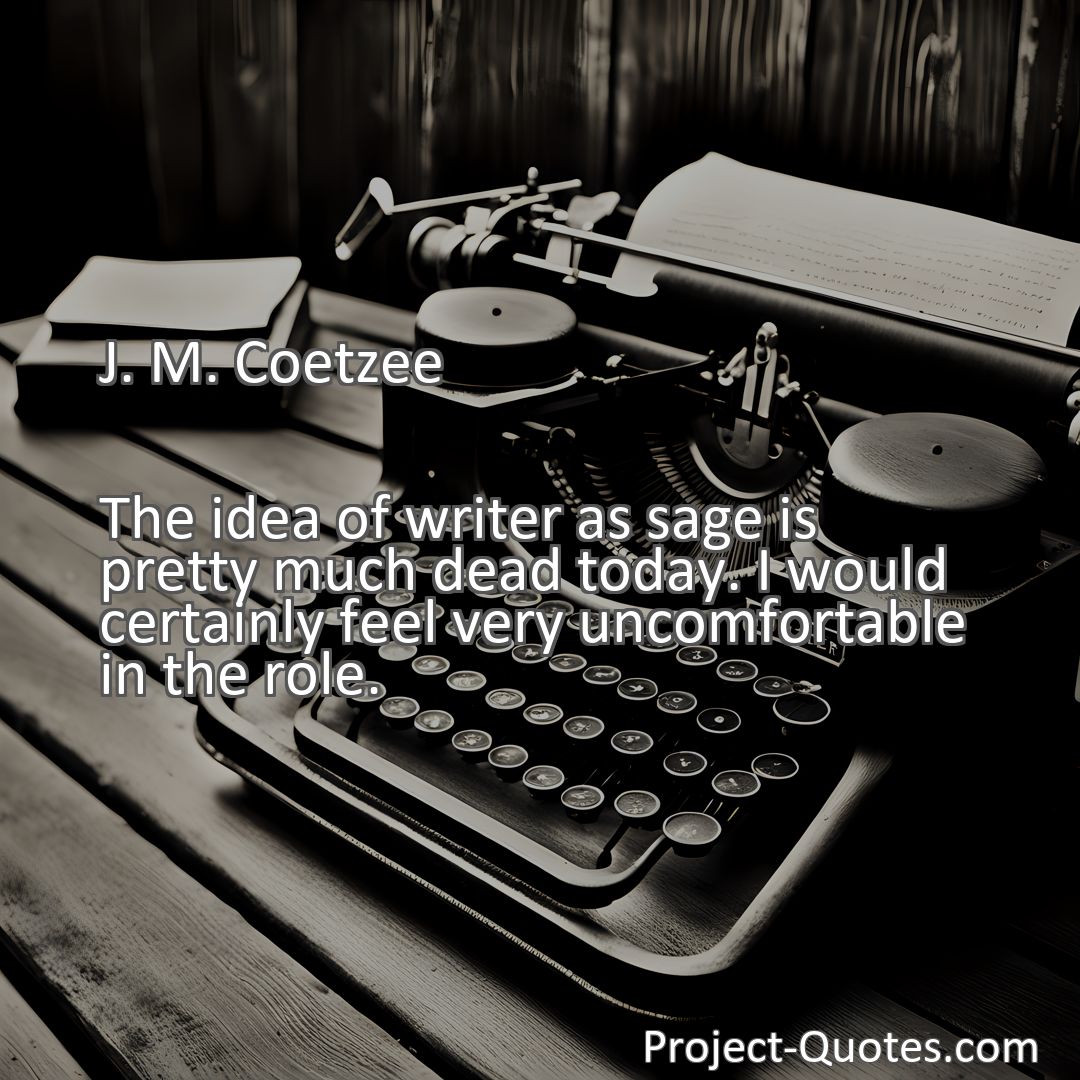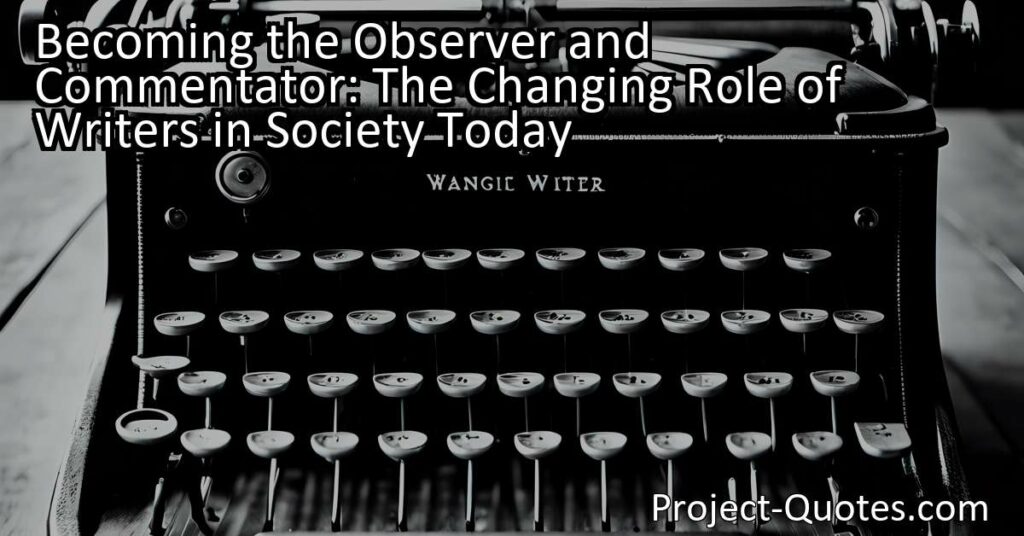The idea of writer as sage is pretty much dead today. I would certainly feel very uncomfortable in the role.
J. M. Coetzee
The changing nature of society and the rapid pace of change make it increasingly unlikely for a single writer to fully understand and encapsulate society. With the emergence of diverse voices and perspectives, the idea of one writer possessing all-encompassing wisdom becomes implausible. Contemporary writers focus on personal narratives, highlighting the complexity of individual experiences and the subjective nature of truth.
Table of Contents
Meaning of Quote – The idea of writer as sage is pretty much dead today. I would certainly feel very uncomfortable in the role.
In the rapidly evolving landscape of literature, the traditional perception of writers as sages has significantly diminished. J. M. Coetzee, an acclaimed novelist, expresses his discomfort with this outdated role. According to Coetzee, the idea of writers serving as all-knowing guides is no longer relevant or appropriate. Let us delve deeper into the reasons behind this shift, exploring the changing perspective on writers and the evolving role they play in society today.
In the past, writers were often revered as knowledgeable figures, sought after for their wisdom and insight. They were considered the arbiters of truth, offering profound observations on the human condition. However, the dynamics of society, technology, and the proliferation of information have reshaped this perception.
One significant factor contributing to the diminishing perception of writers as sages is the democratization of knowledge. With the advent of the internet and the accessibility of information, people no longer rely solely on writers for guidance. The vast amount of information available at our fingertips has empowered individuals to seek out multiple perspectives, challenging the notion that any single writer can possess all-encompassing wisdom.
Furthermore, the democratization of literature itself has played a pivotal role in redefining the writer’s role. The emergence of diverse voices and narratives has shattered the homogeneous image of the writer as sage. The literary canon, once dominated by a select few, has expanded to include a wide range of perspectives and experiences. This shift highlights the importance of inclusivity and the recognition that wisdom can be found in various forms, not solely within the works of a few celebrated individuals.
Another factor to consider is the changing nature of stories and storytelling itself. Traditionally, writers were seen as interpreters of reality, offering profound insights into the human condition. However, as the world changes at an unprecedented pace, the notion of a single writer being able to fully understand and encapsulate society becomes increasingly implausible. Instead, contemporary writers often focus on personal narratives, highlighting the subjective nature of truth and the complexity of individual experiences.
For Coetzee, the discomfort with the role of the writer as sage may also stem from a desire to avoid an unequal power dynamic. Historically, writers held a position of authority, able to shape public opinion and influence societal norms. However, as society becomes more aware of systemic inequalities, the idea of a single writer wielding such power becomes problematic. Coetzee’s unease with this role suggests an understanding of the need for a more democratic approach to storytelling and knowledge dissemination.
In today’s world, the role of the writer has transformed from sage to that of an observer and commentator. Contemporary writers often explore themes of uncertainty, questioning established norms, and offering nuanced perspectives. Instead of asserting absolute wisdom, they engage in dialogue with readers, inviting them to think critically and draw their own conclusions. This shift aligns with the idea of literature as a dynamic and collaborative endeavor rather than a one-sided lecture from a sage on a pedestal.
Moreover, the changing role of technology cannot be ignored when examining the evolution of the writer’s role. In an age dominated by social media and constant connectivity, the boundaries between writers and readers have become blurred. Online platforms provide opportunities for writers and readers to interact, exchange ideas, and challenge traditional hierarchies. This open dialogue further emphasizes the importance of collaboration and shared knowledge creation.
While the idea of the writer as sage may be outdated, it is crucial to acknowledge that writers continue to shape societal discourse and inspire critical thinking. They may not hold the same position of authority or all-encompassing wisdom as in the past, but their contributions remain vital. Through their literary works, writers provoke thought, foster empathy, and shed light on marginalized voices and experiences.
In conclusion, J. M. Coetzee’s discomfort with the idea of the writer as sage reflects the shifting landscape of literature. The democratization of knowledge, changing storytelling practices, and the evolving perception of power structures all contribute to the diminishing relevance of the traditional sage-like image of writers. Instead, contemporary writers engage in collaborative and inclusive dialogues, inviting readers to form their own conclusions. While the role of the writer has transformed, their ability to shape societal discourse and inspire critical thinking remains as essential as ever.
I hope this quote inspired image brings you hope and peace. Share it with someone who needs it today!


